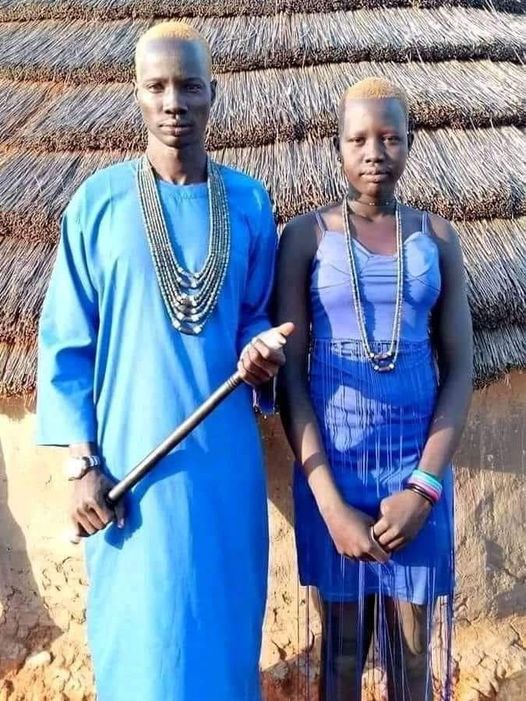
Weird Customs And Traditions Around The World
Our world is a tapestry of diverse cultures, each with its own unique customs and traditions that may seem unusual or intriguing to outsiders. From peculiar marriage practices to innovative survival techniques, these customs offer a glimpse into the rich cultural heritage and creativity of different communities. In this article series, we delve into some of the most fascinating and unusual traditions from around the globe, uncovering the stories and significance behind them.
Join us as we explore how these practices not only define the identities of their practitioners but also provide valuable insights into the human experience, showcasing the incredible diversity and ingenuity of our shared world.
Weird as it may look, Mundari and Dinka tribes of South Sudan take showers with cow urine because they think it’s antiseptic and frees them from parasites and mosquitoes.
The Mundari and Dinka Tribes Who Use Cow Urine for Showers
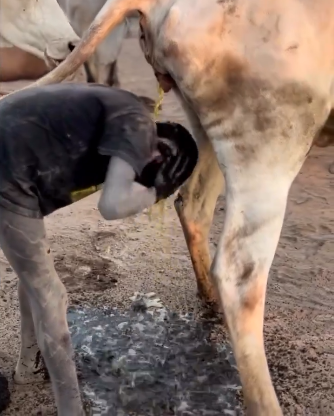
In South Sudan, the Mundari and Dinka tribes practice a unique and ancient tradition: using cow urine for showers. This practice, deeply rooted in their cultural and pastoral lifestyle, reflects the tribes’ close relationship with their cattle.
For the Mundari and Dinka, cows are not just livestock but an integral part of their identity and way of life. These animals are central to their economy, social status, and daily existence. Beyond providing milk, meat, and hides, cows play a crucial role in many cultural rituals and practices, including their unique hygiene routines.
The tribes believe that cow urine has antiseptic properties, which helps in maintaining personal hygiene and warding off infections. After a long day working with their cattle, tribe members stand in the path of urinating cows, allowing the urine to cleanse their bodies. This practice is believed to not only keep them clean but also to protect against skin diseases and other ailments.
Additionally, cow urine is used as a natural hair dye. The ammonia in the urine gives the hair a distinctive reddish tint, which is considered aesthetically pleasing and culturally significant among the tribes.
While this practice may seem unusual to outsiders, it highlights the resourcefulness and deep cultural heritage of the Mundari and Dinka people. It also underscores the significance of cattle in their lives, symbolizing wealth, status, and a source of various life-sustaining resources.
Understanding and respecting such traditions is essential in appreciating the rich cultural tapestry of South Sudan. The Mundari and Dinka tribes, with their unique customs, offer a fascinating glimpse into how traditional practices are intertwined with daily life and survival in their communities.
The Zaouli Dance: One of The Most Difficult Dances To Perform
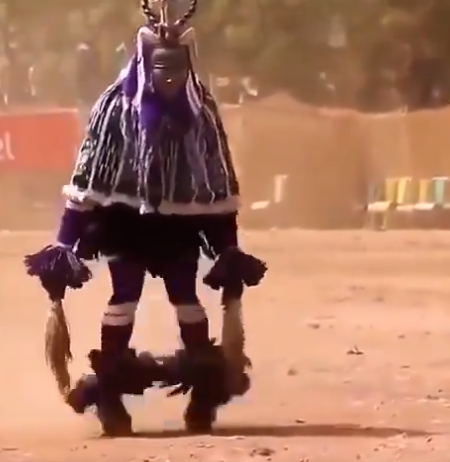
In the heart of central Ivory Coast, the Guro people preserve a rich cultural heritage through the Zaouli dance. This mesmerizing performance is not only a significant traditional art form but also one of the most challenging dances to master.
Known for its intricate footwork and fluid movements, Zaouli, is one of the most difficult dances to perform. A solo dancer wears a beautifully crafted mask and elaborate costume. The mask, often depicting a legendary female figure, is a vital aspect of the dance, embodying beauty, grace, and the spirit of the community.
The dance is accompanied by a lively rhythm produced by drums and other traditional instruments. The dancer’s movements are synchronized with the beats, creating a captivating spectacle that demands exceptional skill and stamina. Each step, twist, and turn is executed with precision, making Zaouli one of the most difficult dances to perform.
The origins of Zaouli are rooted in Guro mythology and folklore. The dance is believed to bring good fortune and social cohesion and is often performed at important ceremonies, festivals, and community gatherings. It serves as a means of storytelling, passing down traditions and values from one generation to the next.
Zaouli is more than just a dance; it is a symbol of cultural pride and identity for the Guro people. Its complexity and beauty continue to inspire awe and admiration, both within Ivory Coast and beyond.
Marriage in the Dinka culture of South Sudan means 4 years of freedom for the bride.

When a man marries, his wife is not required to cook or do household chores for four years. This period, known as “Anyuuc” (Generous Welcoming), allows the bride to rest, relax, and learn about her husband’s homestead values.
During this time, her husband’s sister takes on all domestic duties, including cooking, washing utensils, collecting firewood, and fetching water. After four years, the husband arranges a grand party called “Thaat” (cooking festival), where three cows and five goats are slaughtered, marking the wife’s initiation into cooking for the family. However, if the husband misbehaves during these four years, the wife can choose to leave without returning the dowry.
In the culturally rich communities of South Sudan, the Dinka people uphold unique and deeply ingrained marital customs that reflect their reverence for tradition and respect for women. Central to Dinka marriages is the practice of dowry payment, which can range from 100 to 500 cows. Despite the significant exchange, this custom underscores the high value placed on women within the society.
Cows hold immense cultural and economic significance for the Dinka, symbolizing wealth, status, and prosperity. Despite the dowry payment of 100 to 500 cows, women are highly respected. The dowry, therefore, represents not just a material transaction but a profound gesture of honor and respect towards the bride’s family. It signifies the groom’s commitment and ability to support his new family.
The Banna Tribe: Masters of Walking on Stilts in Ethiopia
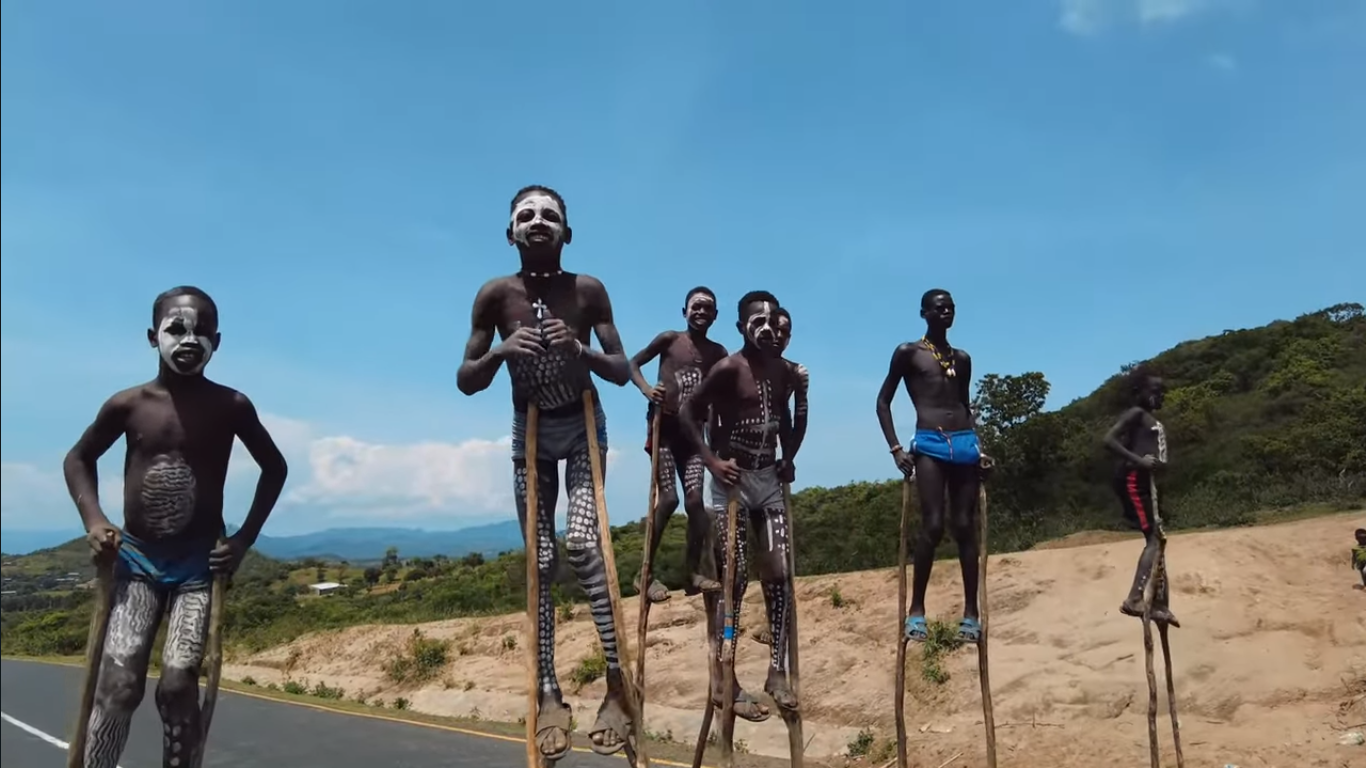
In the Omo Valley of southern Ethiopia, the Banna tribe has developed a unique and ingenious method to protect themselves from wild animals: walking on stilts. This practice, born out of necessity, highlights the tribe’s resourcefulness and deep connection to their environment.
The Banna people live in a region teeming with wildlife, where encounters with dangerous animals such as lions, hyenas, and elephants are common. To navigate their surroundings safely, especially in tall grasses and during nighttime, tribe members use stilts to elevate themselves above the ground.
Walking on stilts offers several advantages. It allows the Banna to see over tall grasses and spot potential threats from a distance. The elevated height also reduces the risk of surprise attacks from predators hiding in the underbrush. Additionally, the stilts enable the Banna to move quietly and quickly across the terrain, minimizing the chance of attracting unwanted attention.
This skill requires balance, agility, and practice. From a young age, Banna children learn to master the art of stilt walking, turning it into a crucial survival skill. Over time, it becomes second nature, allowing them to traverse their environment with confidence and ease.
The practice of walking on stilts also holds cultural significance for the Banna tribe. It is a symbol of their resilience and adaptability, reflecting their ability to thrive in a challenging environment. The stilts are often decorated with intricate patterns and carvings, showcasing the tribe’s artistic talents and cultural heritage.
The Banna tribe’s use of stilts is a fascinating example of human ingenuity in the face of natural challenges. It underscores their deep understanding of and harmony with their surroundings, ensuring their safety and continuity in the wild landscapes of Ethiopia.
The Divorced Women’s Market in Mauritania: A Unique Cultural Phenomenon
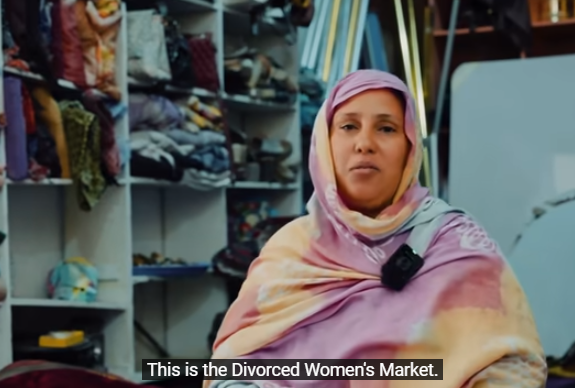
In the heart of Mauritania, a distinctive cultural practice has garnered attention: the Divorced Women’s Market, where recently divorced women gather to sell their household items.
Contrary to stigmas often associated with divorce in many societies, this market highlights a unique aspect of Mauritanian culture where divorced women are empowered to take control of their lives and financial independence.
In Mauritania, divorce does not carry the same social stigma as in many other parts of the world. Instead, it is viewed as a fresh start and an opportunity for women to find new companionship. The Divorced Women’s Market serves as a vibrant space where women who have ended their marriages gather to meet prospective suitors and socialize.
“Boda Boda” Riders in Rural DR Congo: Transporting the Deceased
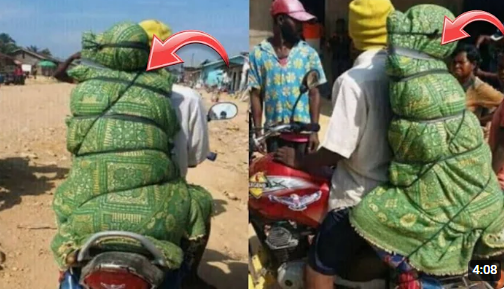
In the rural regions of the Democratic Republic of Congo (DR Congo), a unique and practical solution has emerged for transporting the deceased to and from mortuaries: the use of “boda boda” riders. These motorcycle taxis, known locally as “boda bodas,” have become an essential part of funeral logistics in areas where traditional transportation options are limited.
The rural landscape of DR Congo is often characterized by poor road conditions and limited access to vehicles. In such challenging environments, boda boda riders offer a vital service. Their motorcycles are adept at navigating the difficult terrain, reaching remote villages and communities where other forms of transportation cannot.
Transporting a corpse on a boda boda involves careful and respectful handling. The body is typically wrapped securely and placed on the back of the motorcycle, with the rider ensuring it is transported with dignity. This method, while unconventional, is practical and efficient, allowing families to quickly and affordably move their loved ones to and from mortuaries.
Boda boda riders who perform this service often become trusted members of their communities, known for their reliability and compassion during difficult times. They provide more than just transportation; they offer support and comfort to grieving families, helping to facilitate important cultural and religious funeral practices.
This practice highlights the resourcefulness and adaptability of rural Congolese communities. It underscores the critical role that boda boda riders play in daily life, extending beyond mere transportation to encompass essential social and cultural functions.
In many ways, the use of boda bodas for transporting the deceased is a testament to the community spirit and resilience found in rural DR Congo. It is a poignant example of how traditional practices can evolve to meet modern challenges, ensuring that even in the most remote areas, the dignity and respect for the deceased are upheld.
The Bayankole Tribe of Uganda: A Unique Marriage Tradition
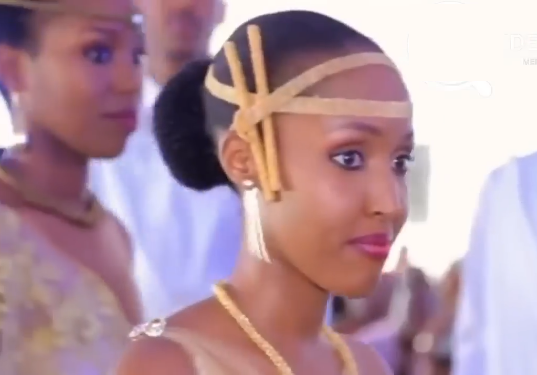
In the heart of Uganda, the Bayankole tribe is known for its unique and intricate marriage customs that reflect deeply rooted cultural values and beliefs. Among these customs, one practice stands out for its distinctiveness and cultural significance: the role of the bride’s aunt in testing the groom’s potency before the marriage is consummated. This article delves into the traditions and the reasons behind this unusual practice.
The Importance of Marriage in the Bayankole Tribe
Marriage in the Bayankole tribe is a significant milestone, bringing immense joy and pride to the families involved. It is a union that is celebrated with numerous rituals and ceremonies, each holding deep cultural and symbolic meaning. For the Bayankole, marriage is not just about the union of two individuals but also about the coming together of families and the continuation of lineage.
Grooming for Family Life
According to Bayankole tradition, the responsibility of preparing a girl for family life falls to her aunt once she reaches the age of eight or nine. The aunt educates her niece on various aspects of womanhood, from household duties to maintaining her virginity, which is held in high esteem. Virginity is seen as a mark of purity and honor, and girls are expected to abstain from premarital sex.
The Fattening Process
Another unique aspect of the Bayankole tradition is the emphasis on a fuller physique. Unlike many cultures that prize a slim figure, the Bayankole believe that a larger body is a symbol of beauty and fertility. Consequently, girls undergo a fattening process to gain weight, making them more attractive to potential husbands. This process begins around the age of eight or nine, in preparation for their future roles as wives and mothers.
The Giveaway Period: Kuhingira
The marriage process involves several ceremonies, one of the most notable being the “Kuhingira” giveaway period. During this time, the bride’s relatives and friends present her with gifts, such as cows and other food items, which she takes to her new matrimonial home. This tradition symbolizes the transfer of support and blessings from the bride’s family to the new couple.
The Wedding Feast
On the wedding day, a grand feast is organized at the bride’s home. The bride’s father performs the symbolic act of slaughtering a bull, signifying the provision and protection the bride is leaving behind. Meanwhile, the groom’s family also holds a feast to celebrate the union, marking the beginning of a new chapter for the couple.
The Role of the Aunt in Testing Potency
One of the most unique and controversial aspects of the Bayankole marriage customs is the role of the bride’s aunt in testing the groom’s potency. Before the marriage is consummated, the bride’s aunt engages in sexual intercourse with the groom. This practice serves several purposes:
- Ensuring Potency: The primary reason for this custom is to confirm that the groom is potent and capable of fathering children. Fertility is highly valued in the Bayankole culture, and this test is seen as a way to ensure the couple’s future prosperity.
- Sexual Education: During this act, the aunt learns the groom’s sexual preferences and techniques. She then imparts this knowledge to her niece, providing her with guidance on how to satisfy her husband sexually.
- Cultural Assurance: This tradition also serves as a cultural assurance, reinforcing the tribe’s values and customs. It is a way of preserving their heritage and ensuring that the new generation adheres to the traditional norms.
Conclusion
The Bayankole tribe’s marriage customs offer a fascinating glimpse into a culture that places immense importance on family, fertility, and tradition. While the practice of the bride’s aunt testing the groom’s potency may seem unusual or controversial to outsiders, it holds significant cultural meaning for the Bayankole people. It underscores their commitment to ensuring successful and prosperous unions, rooted in a deep respect for their ancestral traditions.
